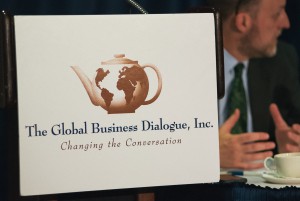A team of top U.S. economic advisors is in Beijing to meet with Chinese officials about China’s discriminatory intellectual property and forced technology transfer practices. Looming over these discussions is a possible trade war between the U.S. and China over proposed actions resulting from USTR’s Section 301 investigation of China’s practices.
With $5 billion in U.S. chemicals and plastics trade to China potentially impacted by the retaliatory tariffs that China has proposed, American chemical manufacturers hold a significant stake in the outcome of these negotiations. 40 percent of the products on China’s initial Section 301 list relate to chemicals. These products are largely basic chemicals, plastic resins, and some specialty chemicals as well as some finished forms of plastics (films, sheets, and other plastic products).
China is already one of the U.S. chemical industry’s most important trading partners, importing 11 percent, or $3.2 billion, of all U.S. plastic resins in 2017. And the Chinese market is critical for the continued growth in our sector.
U.S. chemical manufacturers have been particularly successful in the global marketplace when tariffs are low, and near zero when possible. Our sector certainly will be impacted by additional tariffs. But the impacts of additional tariffs would be felt not just by chemical companies, but across the entire economy.
According to a new study by Trade Partnership and sponsored by the National Retail Federation and Consumer Technology Association, the proposed $50 billion of U.S. tariffs would lead to four job losses for every job gained (net loss of 134,000 jobs). Adding an additional $100 billion in tariffs would cost 455,000 jobs and reduce GDP by $49 billion. The ten states that would suffer the highest job losses are California, Texas, Florida, Washington, New York, Georgia, Missouri, Pennsylvania, North Carolina and Ohio.
ACC and other leading businesses associations weigh in
The Global Business Dialogue, a trade policy association, hosted a dialogue last week at the National Press Club featuring representatives from the US-China Business Council, Information Technology Industry Council, American Farm Bureau Federation, and the American Chemistry Council (ACC). The businesses represented by these industries are responsible for billions of dollars in U.S. exports to China and hundreds of thousands of export-dependent jobs.

The Global Business Dialogue

(L-R) Ed Brzytwa, ACC; David Salmonsen, Farm Bureau
The threatened tariffs have a significant potential impact on the business of U.S. chemistry. For the first time in decades,the U.S. enjoys a competitive advantage in chemicals and plastic production, made possible by affordable domestic natural gas, the industry’s primary feedstock. Since 2010 the United States has gone from one of the most expensive places to produce chemicals, to one of the world’s lowest cost producers. Today, American chemical manufacturers produce 15 percent of the world’s chemicals, and account for 14 percent of all U.S. exports, amounting to $181 billion in 2017.
Approximately $194 billion in new chemicals and plastics production capacity has been announced in the past eight years, and more than 60 percent of that is foreign direct investment. Much of the new capacity is intended for export, reflecting that the United States is an excellent platform from which to serve the global marketplace.
A shot across the bow
That China has included significant numbers of chemicals products on its retaliation list is a recognition of the competitiveness of the U.S. chemicals industry and the challenge it poses to China’s own fast-growing chemicals industry.
China also knows that these tariffs will hit consumers of chemicals (ag, autos, other manufacturers), which will depress demand for U.S.-made chemicals, leading to less production, less investment, less exports, and less jobs created in the U.S.
Overall, ACC estimates that the proposed 25 percent tariff on U.S. exports would result in a decline in U.S. chemical production of $2.4 billion to $2.8 billion. More than $1.5 billion of this is direct loss of U.S. exports of chemicals (from the tariffs), and the balance is the chemistry embedded in other U.S. exports at risk.
On the path to a resolution
We strongly encourage the Administration to develop a clear plan that delineates the measurable steps that China must take to address problems like intellectual property theft and forced technology transfer, backed by strong and transparent verification and enforcement.
ACC is hopeful that, with support from Congress, the Administration and the Chinese government will recognize that it is in the best interest of both countries to commit to a process that will produce a mutually beneficial agreement before the proposed tariffs go into effect.